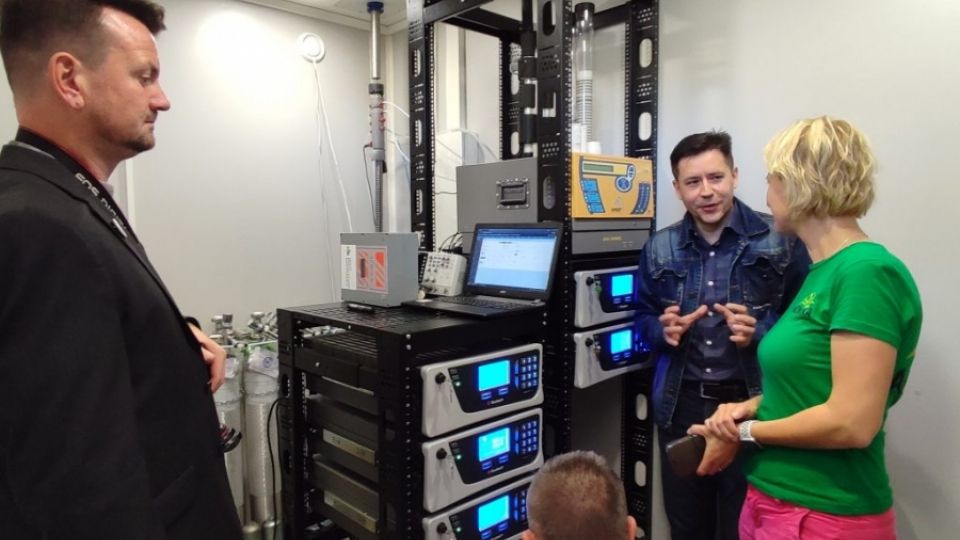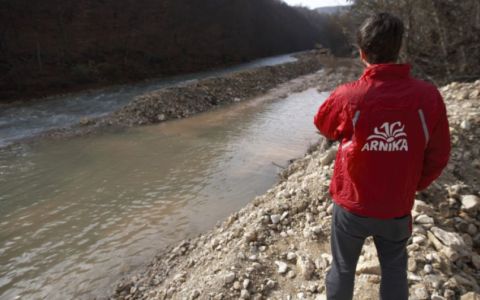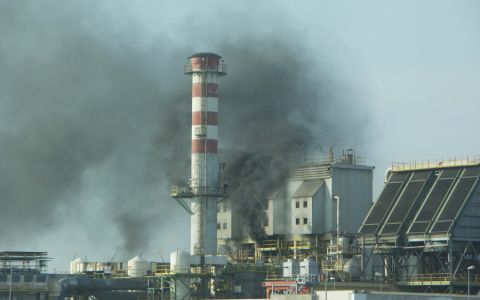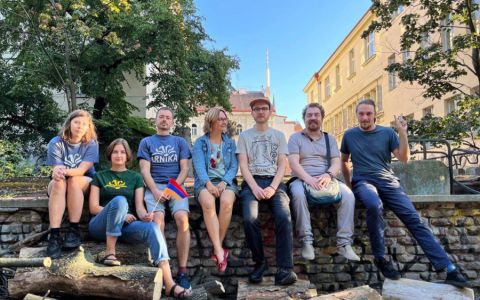In September, a delegation of experts from Czech environmental NGO Arnika, dealing with industrial air pollution and from 2018 implementation of the Clean Air for Ukraine Project, visited Ukraine. Mission organized together with the local team experts and EcoCity representatives aimed mainly to present the results of a unique collocation experiment and to discuss air monitoring and pollution reduction plans.
On September 12-15, project experts visited Zaporizhzhya, a big industrial city in southeastern Ukraine. The Zaporizhzhya International Environmental Forum was held here these days, where representatives of the Arnika and Nádech NGOs met with local activists, government officials at various levels, scientists, and deputies. They also took part in a scientific conference on air protection to talk about the Czech experience in using environmental monitoring data in government activities and reducing air pollution in industrial agglomerations.
After that, Arnika invited the visitors of the Ecoforum to the round table "Development of regional systems of public information about the risks of air pollution", which was organized within the mission.
“The state should create a comprehensive state monitoring of the environment, and the environmental inspection should work to control pollutants. Industrial modernization must take place, as a result of which emissions must be reduced. However, none of that will happen without strong civic influence. In Ostrava, the path from strong pressure on the industry to its modernization took 20 years,” said Martin Skalsky, Clean Air for Ukraine Project manager and expert on public participation from Arnika (Czech Republic). The expert praised the fact that a mobile laboratory for environmental monitoring has been set up in Zaporizhzhya, urban pollution reduction plans are being created, and the process of creating an ALARM notification system is underway.
On September 16-17, the delegation worked in Dnipro, the most polluted city in the region, where citizens are being poisoned by emissions from thermal power plants, metallurgy, and transport. First, experts from Arnika and Nádech visited the Center for Environmental Monitoring, where a unique collocation experiment is taking place - for the very first time in Ukraine. “For two months now, 10 EcoCity stations in Dnipro have been working next to our reference equipment,” said Oleksiy Angurets, Deputy Director of the Center for Environmental Monitoring. “Preliminary: the general levels are similar in time and indicators, so we conclude that public monitoring makes it possible to objectively monitor the dynamics of the pollution process.”
During that, the Dnipro Regional Council held a round table "Clean Air for Ukraine: Air Monitoring as a Service for Citizens and Pollution Reduction Plans" to discuss regional air quality monitoring plans. "It is very important to know that there is an interesting positive public, scientific, and expert experience that you can turn to," concluded Pavlo Khazan, a deputy of the Dnipropetrovsk Regional Council. “We plan to develop both a network of reference stations for assessing the quality of air and water and a network of simpler electrochemical stations that can quickly provide fairly high quality and accurate information. State and public monitoring should work in a united system to obtain analysis and conclusions for management decisions.”
On September 18-19, project representatives visited the hotspots of small towns around Zaporizhzhya NPP and Zaporizhzhya TPP. Residents of Nikopol, Marganets, and Energodar are worried about air pollution caused by dust from burning coal and the risks of radioactive pollution.
Later on September 20, in Kharkiv, Czech experts were invited by local activists to a round table entitled "Clean Air for Kharkiv: From Public Monitoring to Integrated Air Quality Management." The participants of the event discussed the European experience in this field, the best Ukrainian practices, and the current state of monitoring in Kharkiv. Kharkiv activists demand the state publish the measurements of each state monitoring station online and pollution control and reduction plans are agreed upon with the public.
The main result of the Czech mission was an acquaintance with Ukrainian activists from different cities, who received inspiration and expert support. New joint projects and pollution reduction plans, conferences, and research are ahead, same as the new round of projects' Small Grants Program.
Presentations from the Clean Air for Ukraine Project's autumn mission are available (in Ukrainian) here:
Круглий стіл у Запоріжжі 15/09/2021
Круглий стіл у Дніпрі 17/09/2021
Круглий стіл у Харкові 20/09/2021







